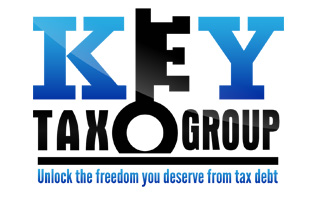You may already know that Chapter 7 bankruptcy is a way to eliminate some types of debt, but did you know that in certain cases you can also erase your tax debt? Chapter 7 bankruptcy is a government-backed debt liquidation option that allows debtors to eliminate eligible debt. Unlike Chapter 13 bankruptcy, Chapter 7 does not require a repayment plan—your debts are wiped away as if they never happened.
With the help of a qualified tax professional, you can take advantage of Chapter 7 liquidation for your eligible tax debt and avoid the serious consequences of owing the IRS taxes.
Types of eligible debt for a Chapter 7 bankruptcy
There are two types of debt: secured and unsecured. Secured debts are those that are backed by collateral, such as your home. Secured debts can’t be discharged with bankruptcy.
Unsecured debt, on the other hand, isn’t tied to collateral and can be discharged in a Chapter 7 bankruptcy for all debt accrued up to the date of filing. Common types of dischargeable unsecured debt include credit card balances, collection agency accounts, and medical bills.
When it comes to tax debts, however, only some types of federal and state tax debts can be discharged under Chapter 7. The rules for discharge are more complicated than for other debts and certain conditions must be met in order for the debt to be dischargeable.
Some types of federal and state tax debt are eligible for discharge under Chapter 7 if certain conditions are met:
- The taxes must be income-based
- Your tax debt must be from a tax return that was due more than three years ago
- You filed the return at least two years ago
- Your tax liability was entered against you at least 240 days ago
- Your tax return doesn’t contain fraud or willful evasion
The following other types of tax debt are not eligible for discharge under bankruptcy and must be addressed in a different way:
- Tax liens
- Some property taxes
- Third-party taxes such as Medicaid, FICA, and sales tax
- Some tax penalties
To determine whether your tax debt is eligible for discharge under a Chapter 7 bankruptcy, consult an experienced tax specialist.
Chapter 7 bankruptcy and Federal tax refunds
Filing for Chapter 7 bankruptcy may affect your federal tax refunds. In some cases, federal tax refunds can be delayed. Other situations require the refund to be given to the Chapter 7 trustee first to determine whether the refund is needed for your bankruptcy, or the refund can be seized and used to pay down your debt. Whether you receive your federal tax refund depends in large part on the circumstances of your case.
Eliminate your tax debt with the specialists at Key Tax Group
If you’d like more information on whether your tax debt can be eliminated by Chapter 7 bankruptcy, contact the tax specialists at Key Tax Group today. We have more than 35 years of combined experience helping clients like you resolve their tax debt and can help with the most complex tax issues. Learn more about us.
